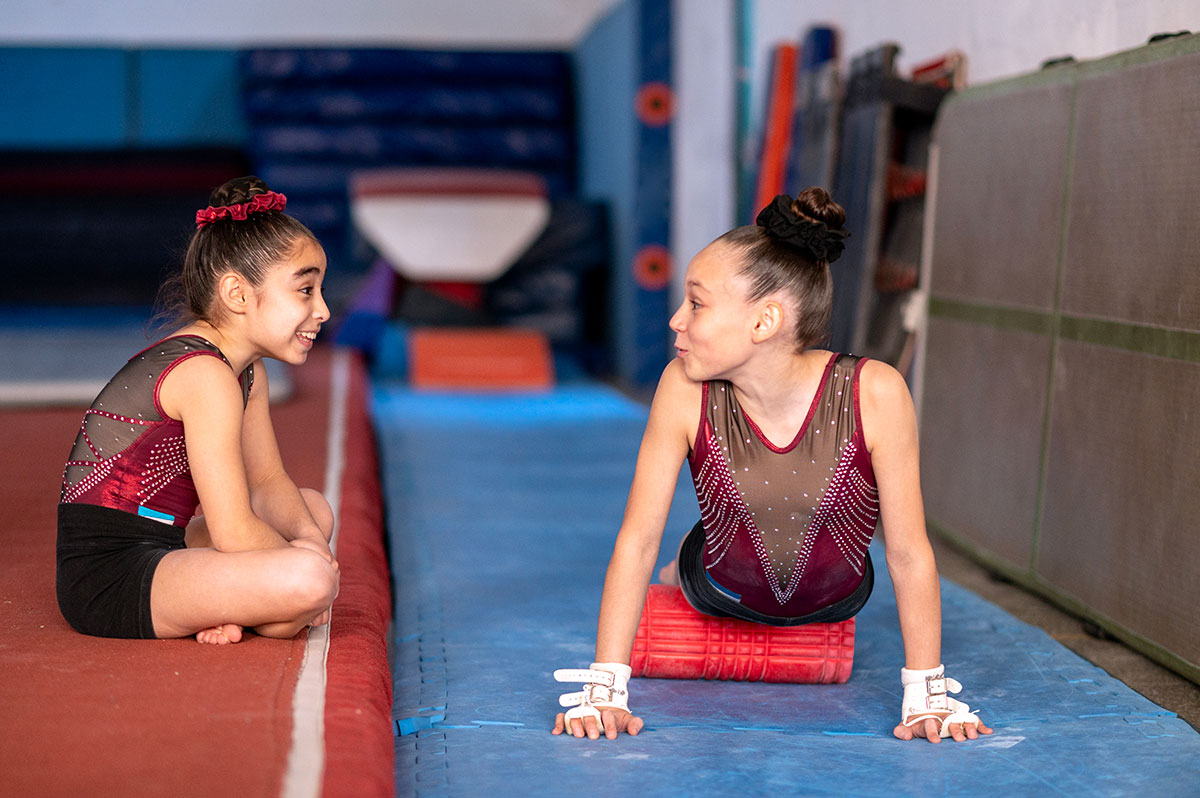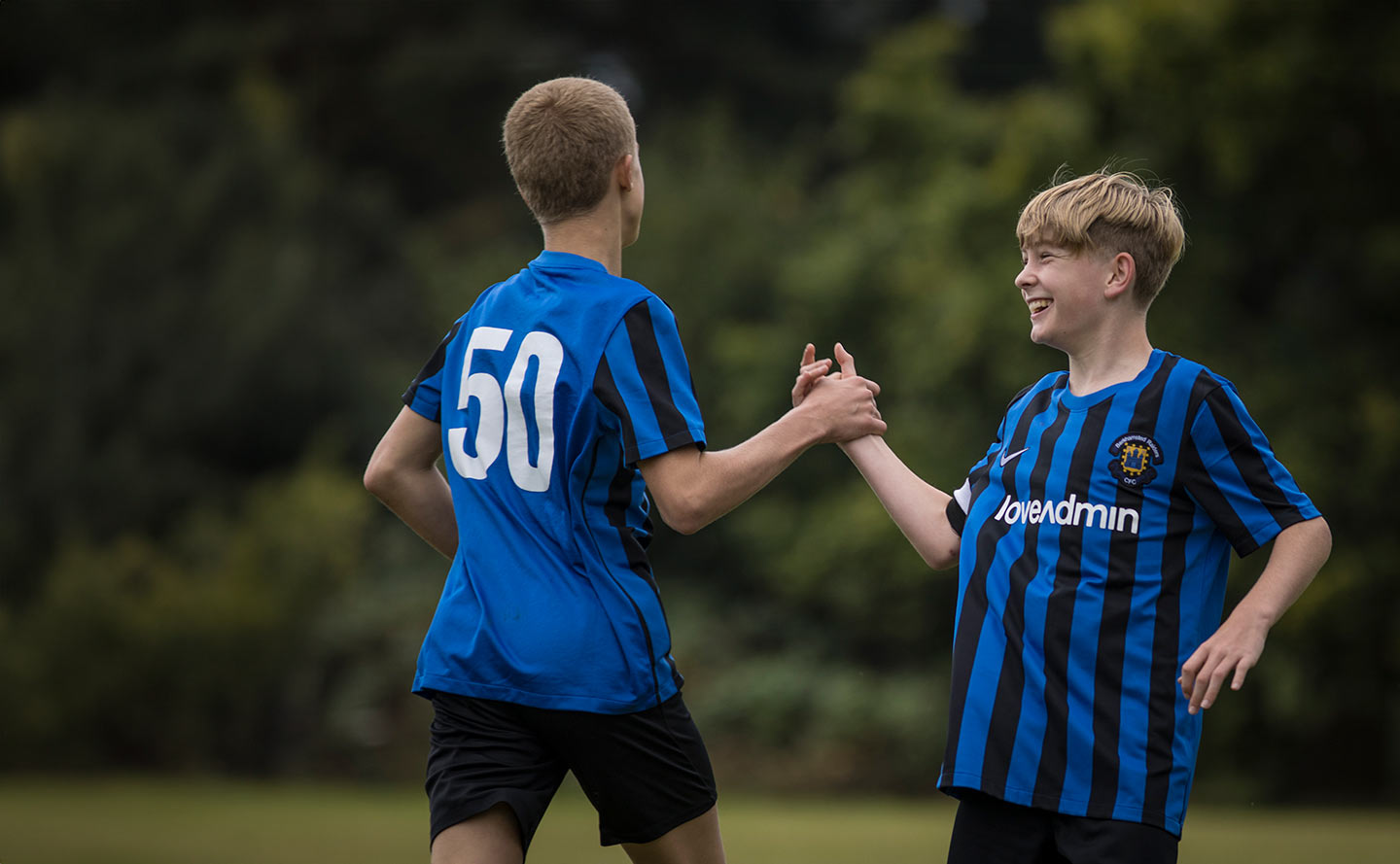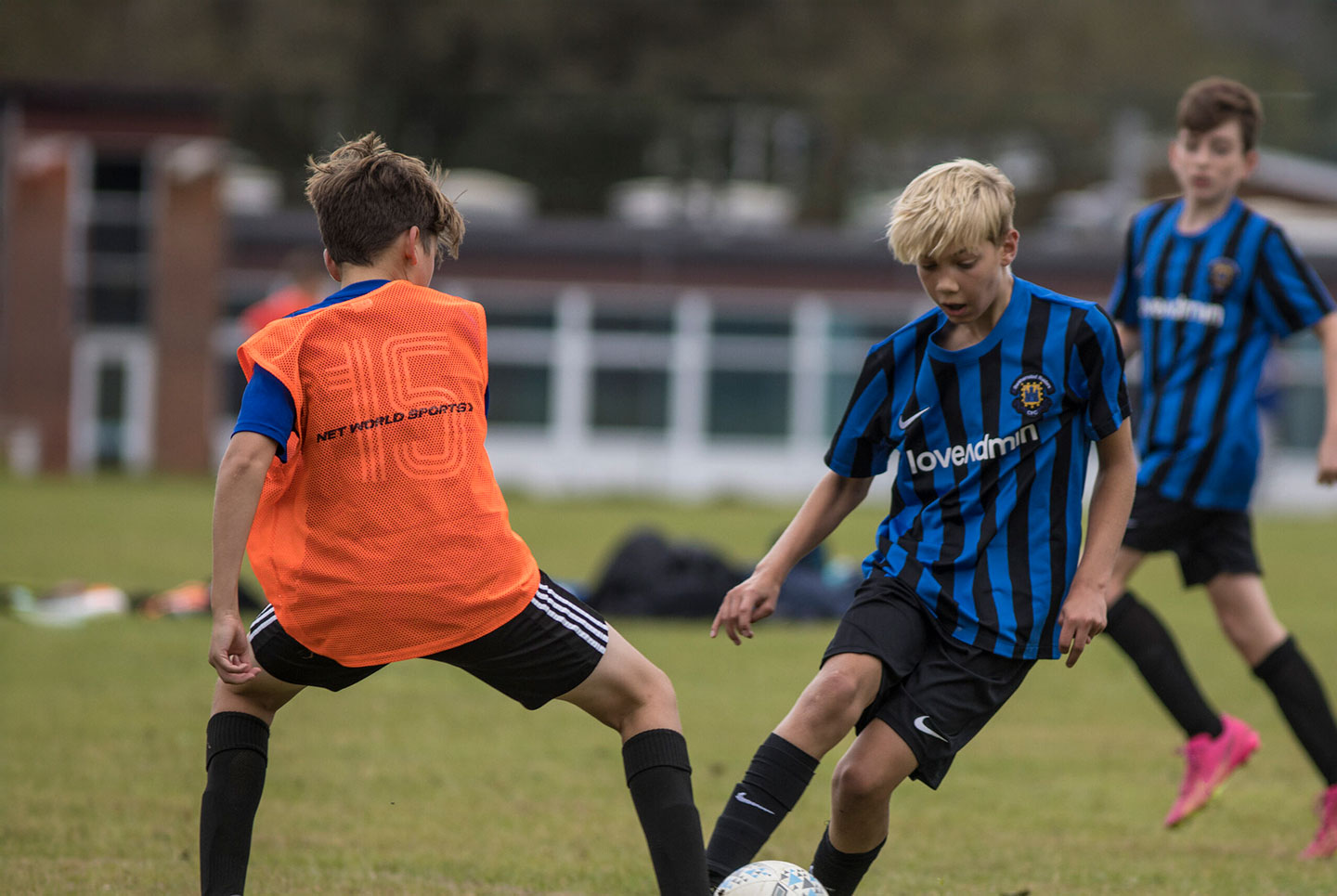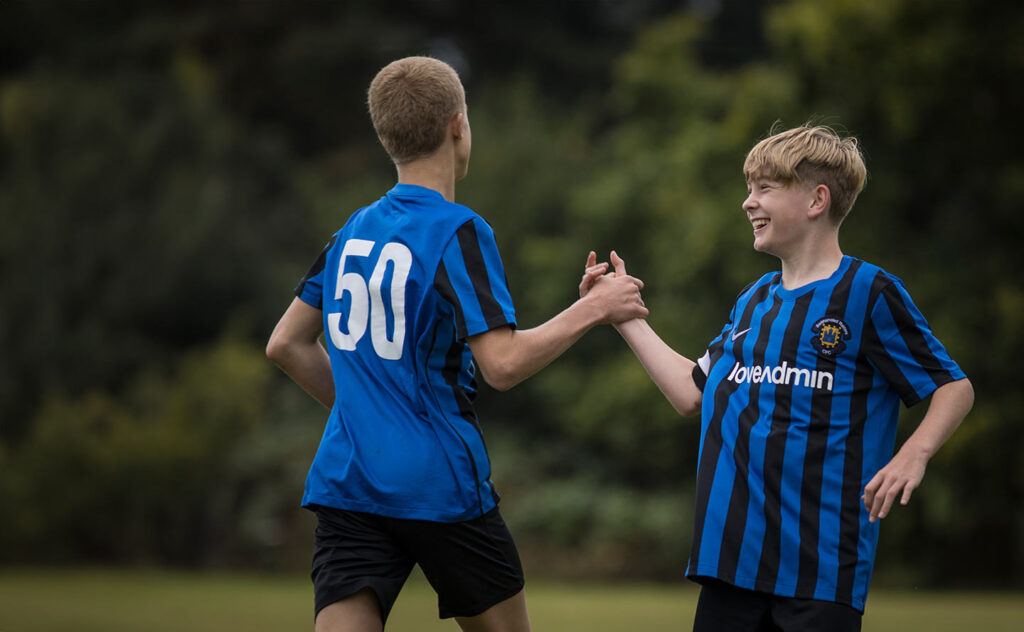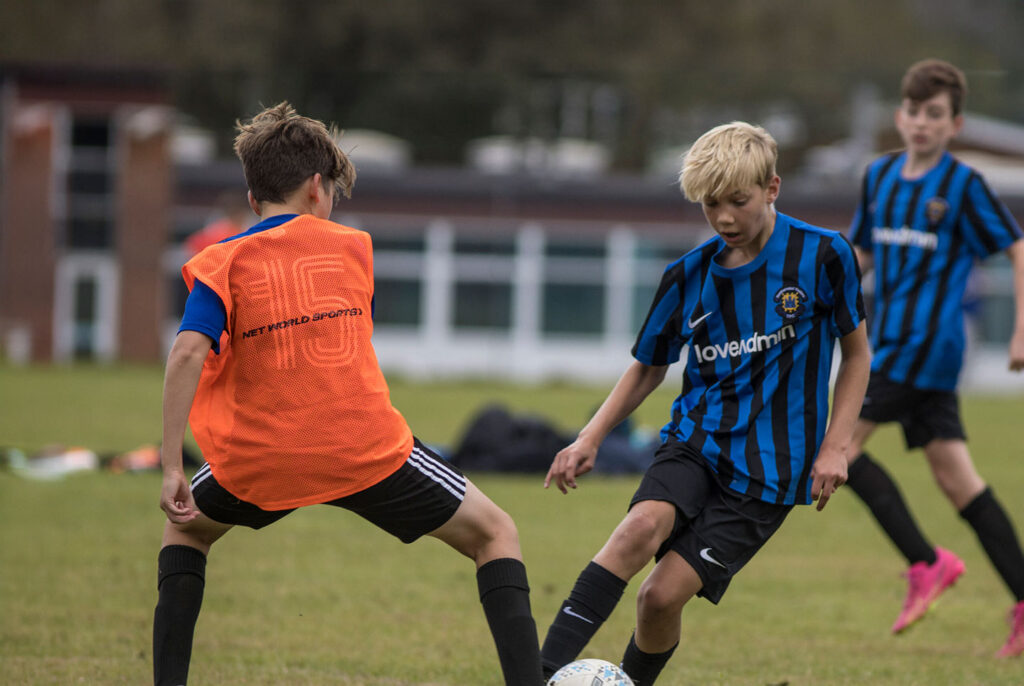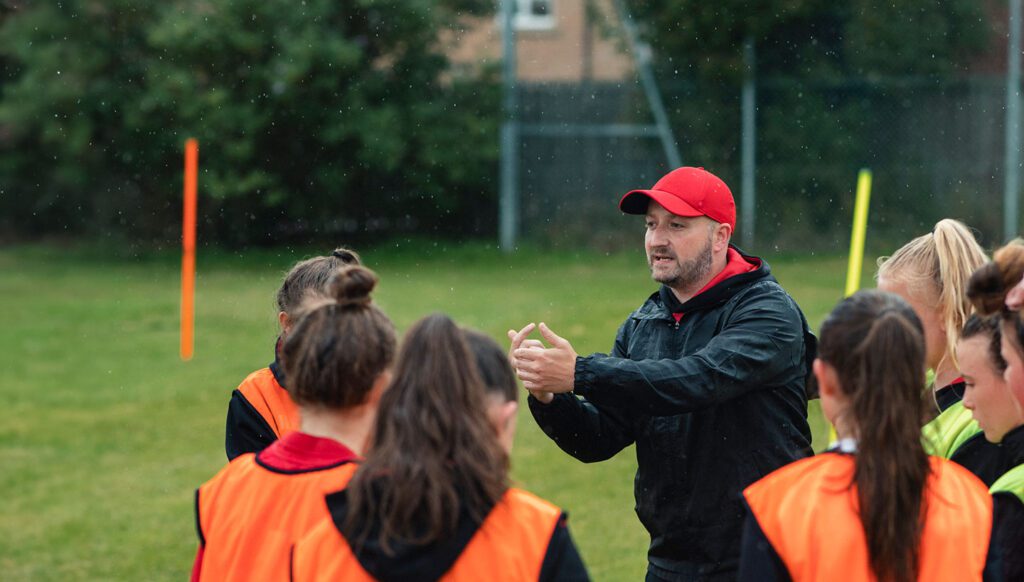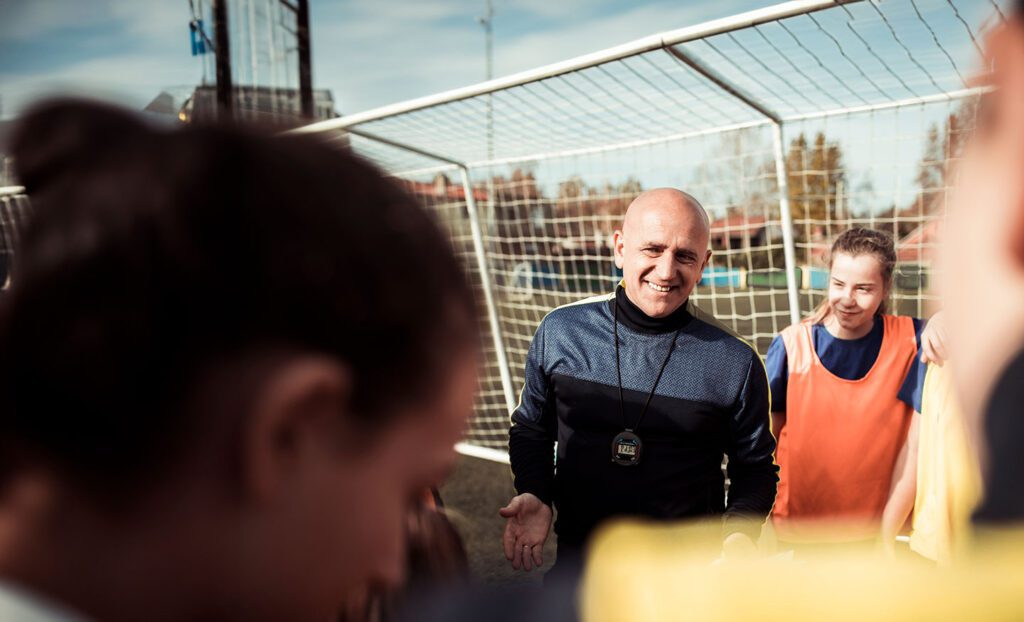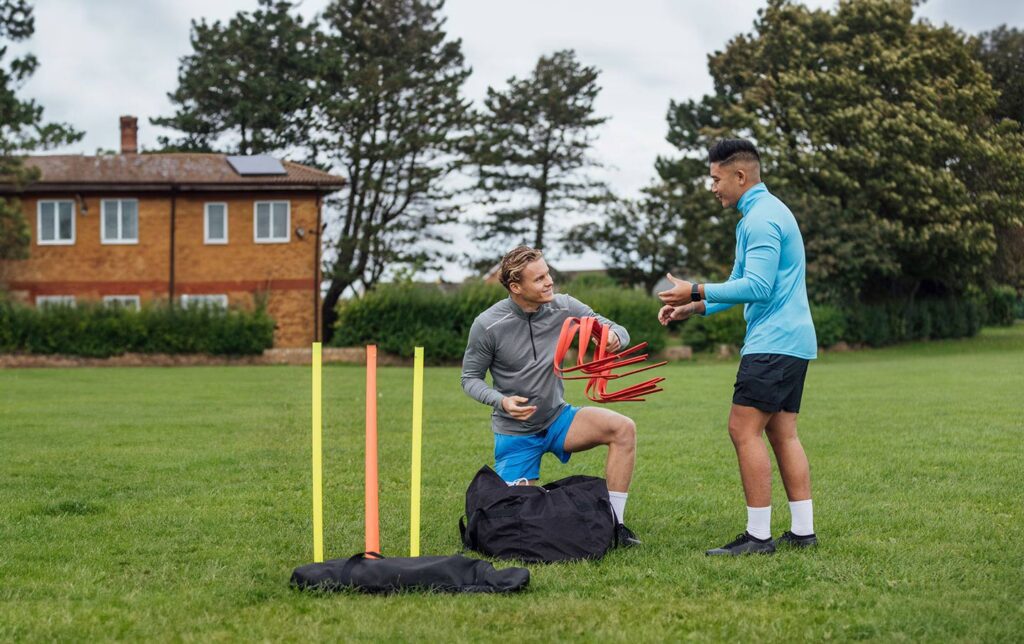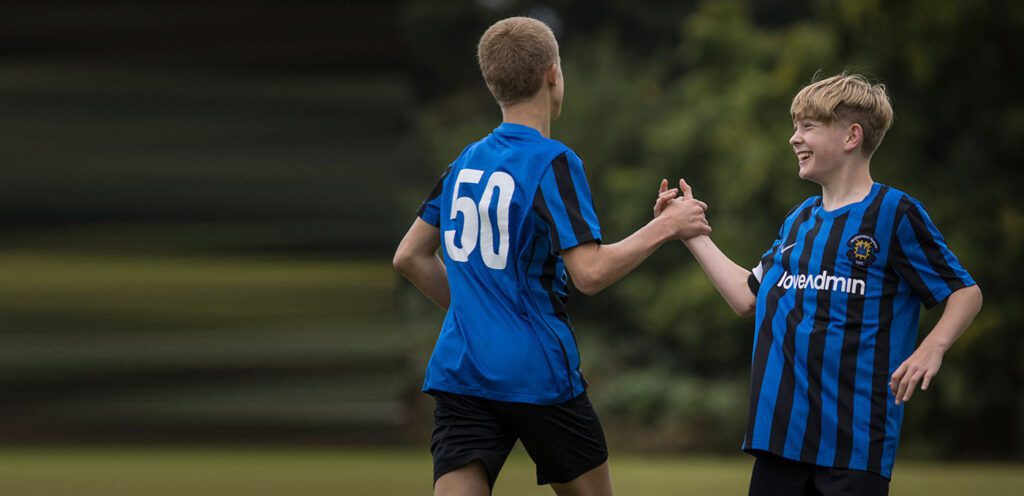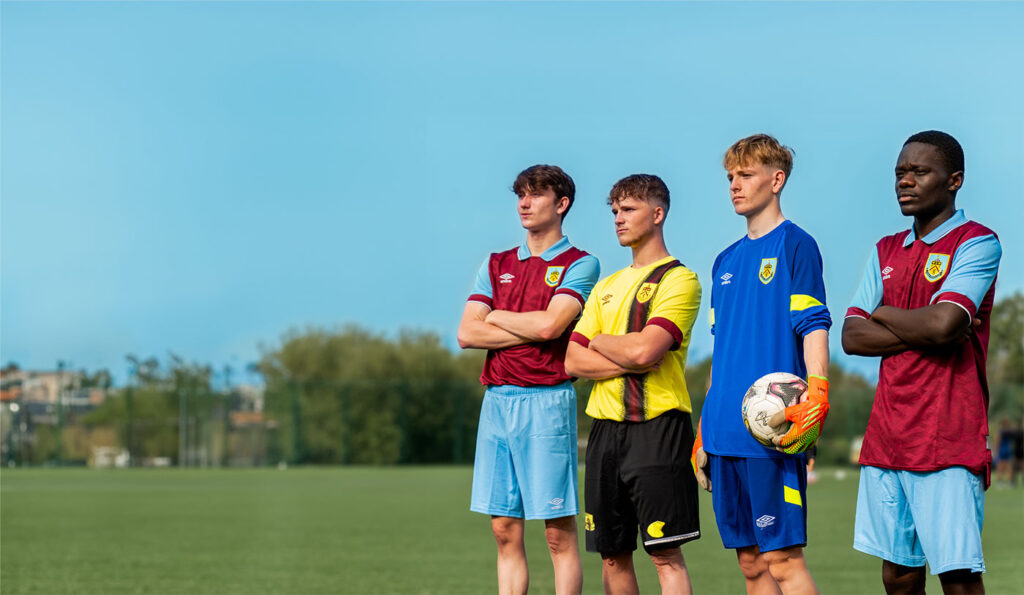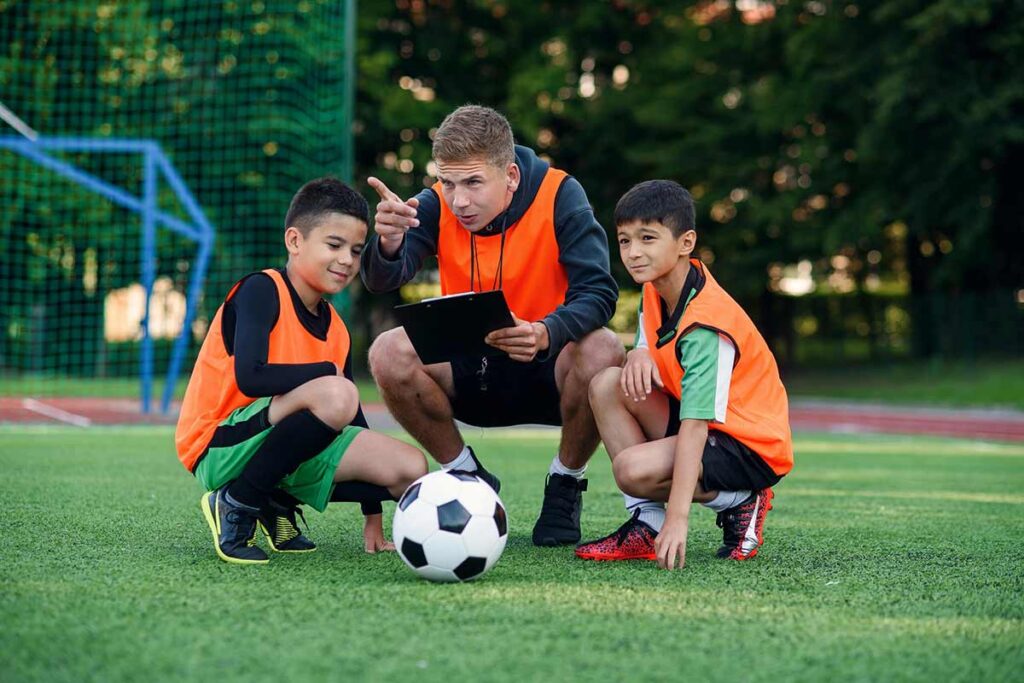Matt Taylor, former West Ham midfield star
We spoke with Matt Taylor, former West Ham midfield star and now under-18 coach at Tottenham Hotspur to discuss his long football career and how coaching completely changed his outlook on the game.
Read our interview to get his inside tips on how you can inspire your grassroots team, how to get the most from your players – and what your club can do to increase revenue.
Hello Matt. Thanks for joining us. How are you doing in lockdown?
I’m really good thanks. And we’re doing well. It’s a strange time but we’re working our way round it.
Let’s look at your playing career
You were named the Luton Young Player of the Season in your first year as a professional (1999/2000) before winning the Player of the Season award in 2000. You then went on to make 658 appearances for seven different clubs and scored 94 goals in your 20-year playing career. So what drew you into coaching?
Well, every player’s career ends at some point. During my career I’d never even thought of being a coach. I’d always been a student, never a teacher. But I had to plan for the future, so as I hit 30 I went for my first coaching badge. I was still playing at West Ham at the time, but I became completely hooked on this new world of learning tactics, strategy and everything that was different about the sport I thought I knew.
What made you feel like that?
Coaching helped me understand people and, more importantly, football in a way playing never did. Now I have to think of others, to put them first and see how I can get the best out of them. I look at individual players, the whole team, even the opposition in a completely different way. As a coach you have to develop your own technique that works for you.
And what’s yours? What did your learning process look like?
To begin with it was simply asking questions. I was curious. I went and watched as many games as I could and talked to as many people at the clubs as I could. I just asked them everything I wanted to know. You’ll be amazed how many people will talk to you when you do that. That’s how I learnt and am still learning.
How does that translate into getting the most out of your players?
It’s about communication and understanding. About being completely honest and upfront. As a player, I wanted to hear the truth from my manager, good or bad. And I didn’t always get it. So now I’m honest with the players so they always know where they stand. Be polite, be professional, but be honest.
Is there a difference between how seasoned professionals are managed and players in an under-18 team?
OK, so the pros have a better understanding of the game, and better abilities. That’s just experience. But for both types of player repetition is key. You keep practicing set pieces and how to react to different situations again and again and again. That’s how you improve as a player. As a manager, support and motivation has to be there for all levels of player.
So how has coaching changed you as a person?
I really thought I knew about football having played for 20 years, but coaching has given me an increased level of empathy. If you’re going to make it playing in a league sport, the selfish side of you needs to be up front. You don’t need to worry too much about other people. But now I’m much more self-aware – how I appear, how I behave, my body language, how I communicate what I need to communicate. That change in me affects the team.
What else has helped you?
There’s one book I’m reading now that is fascinating: ‘The Subtle Art of Not Giving a F*ck: A Counterintuitive Approach to Living a Good Life’ by Mark Manson. I’d also recommend ‘Alex Ferguson: My Autobiography’ and ‘Legacy’ by James Kerr, too. The last one is about the All Blacks and their mental approach to becoming a better person. There’s a great belief in the team because, as they say, ‘better people make better All Blacks’. I love that.
So let’s talk about other influences
Have other managers affected your style? And has Covid changed how you interact with them?
As a coach, I think back to the relationships I had with other managers, and when they were personable people then the relationship was better. There has to be understanding. Going back to Sir Alex for a moment, he got to know all the players’ parents by name. It was a personal touch. He became connected. The best managers I’ve worked with asked you questions, they wanted to know all about you. And that builds a bond. That said, the second the player runs onto the pitch and crosses that white line you can’t influence them at all. You rely on all the work you’ve done in the week.
As for Covid, right now we’re all in the same position and we can’t merge between groups. You just have to adapt and work around your limitations.
How does the community programme work at Spurs?
We have a lot of development centres that use the facilities here, I’m happy to say. One of the reasons these things are unique is that kids all develop at different times. You have to appreciate that and bide your time with some of them. But it’s so exciting as it’s always an unknown who’ll emerge as a talent, who you’ll find to sign.
So what qualities do you look for in a player, apart from basic talent?
There are so many things. Personally, I was never the most talented player but I was the hardest working. Talent gets you through the door but it’s not what keeps you there. It’s about self-positivity, it’s dealing with the setbacks, the games you lose, dealing with those matches when you under-perform. These days young people have so much more knowledge of their games through technology. There are great analysis tools available for grassroots and professional players. Teams are changing how players review their performance, and all that helps.
What about attitude? How does that factor in?
You have to have a genuine desire to succeed. Football is an incredibly competitive sport so you need to work hard; harder than anyone else. You need to self-reflect – that’s massively important. The brain is the most important muscle you have, so you need to train it just like you train your body.
Basically, you either learn or you don’t learn, it’s really as simple as that. I look at it like this – if your team is successful, you are successful. Not the other way around. You are not the team, just part of it.
How do you congratulate your team when they win? How do you deal with them losing?
To me, it’s the same thing. Both are learning opportunities. The way to get the most from either result is to ask ‘Why?’. Asking why you lost is important but so is asking, why did you win? What can you learn from either experience? It’s so simple but it’s so important.
How do you avoid blame?
As a coach, it’s irrelevant. The best players know when they’ve done something wrong so piling on the criticism doesn’t help. In all my career, as a player and as a coach, if I haven’t done my job, I put my hand up and say so. It’s all about being completely honest with yourself and with the people around you.
How does that translate to managing kids at a grassroots level?
My son plays grassroots football and let me tell you, no kid goes out there to make a mistake. I’ve seen that the expectations can be too far too high on kids. Just let them play football and enjoy it, don’t put them off the game. They love football, they’ve all paid their subs, and they’re working hard. Teach them and support them and share your passion, but just let them play. Because if they don’t enjoy it, they won’t be playing for long.
What advice would you give a grassroots coach?
Don’t be a coach who only wants their team to win. Be a coach who wants them to develop. And I can tell you this from experience, you will win more games if you let your team grow and learn on their own terms and at their own speed. To be focused on nothing but winning with a young team won’t work in the long run.
How important is grassroots football?
Massively. If there was no grassroots football there wouldn’t be an England team. It’s as simple as that. We depend on it and every other country on the planet does too. The best international players wouldn’t be there without grassroots football. That’s why you have to make sure kids enjoy every game so we nurture the next generation of talent. Football teaches kids how to work as a team, how to be a member of a team, and how to take personal responsibility.
What advice would you give to someone running a local football club?
Just coach your team so they don’t fall out of love with the game. My son loves grassroots football and the coach is a volunteer, a really great guy who leads by example. He does all the admin, he’s always there, always working, the balls are pumped up and clean. His passion drives the club and he looks after his team.
As for advice, as I said before, I’d make sure you always ask yourself why the kids won or lost. What can we all learn from the experience as a team?
How do you include the parents in all this?
Set your stall out with them early on and explain how you’re going to work with their kids. So, for example, do you want to one day win the league (in which case, players might not get equal game time), or just want to make sure the kids have fun? Whatever it is, tell the parents your plans so they know what their children will be doing.
Remember, those parents are the ones paying the subs. They will be coming along to every match, so you need to involve them as much as you can.
Last question, in your opinion, what could local clubs do to increase their revenue?
Think outside the box. What can your club offer that others can’t? What will make you special? What can you do that will get the parents talking about you and sharing it on social media? Find your USP, really.
So see if you can hire a tea and coffee van to be there at the pitch. I’ve seen those tuk-tuks that sell everything from fresh doughnuts to sandwiches. You can take a percentage of what they sell so everybody wins. And the more you offer, the more people will like coming to games and supporting you. Standing at the side of the pitch in the pouring rain is no fun for a parent, so how can you help them out?
Another thing is to simply ask parents if they could give a little more. Are any of them connected to a business that would sponsor you? Even giving items from their business to raffle off would help.
One of the biggest things semi-pro clubs are investing in at the moment is a 4G surface. That way the venue can be used six, seven hours a day so you can hire it out whenever you’re not using it. It isn’t cheap but it is a good investment.
Just remember that there are so many similarities between running a grassroots football team and running any other company. Financial challenges, income generation, staff recruitment and retention, publicity, word-of-mouth, growth targets. It’s just the same. And I think the more you can think like that, the more you can plan for the future and get your club organised and running smoothly, the better it is for everyone.
